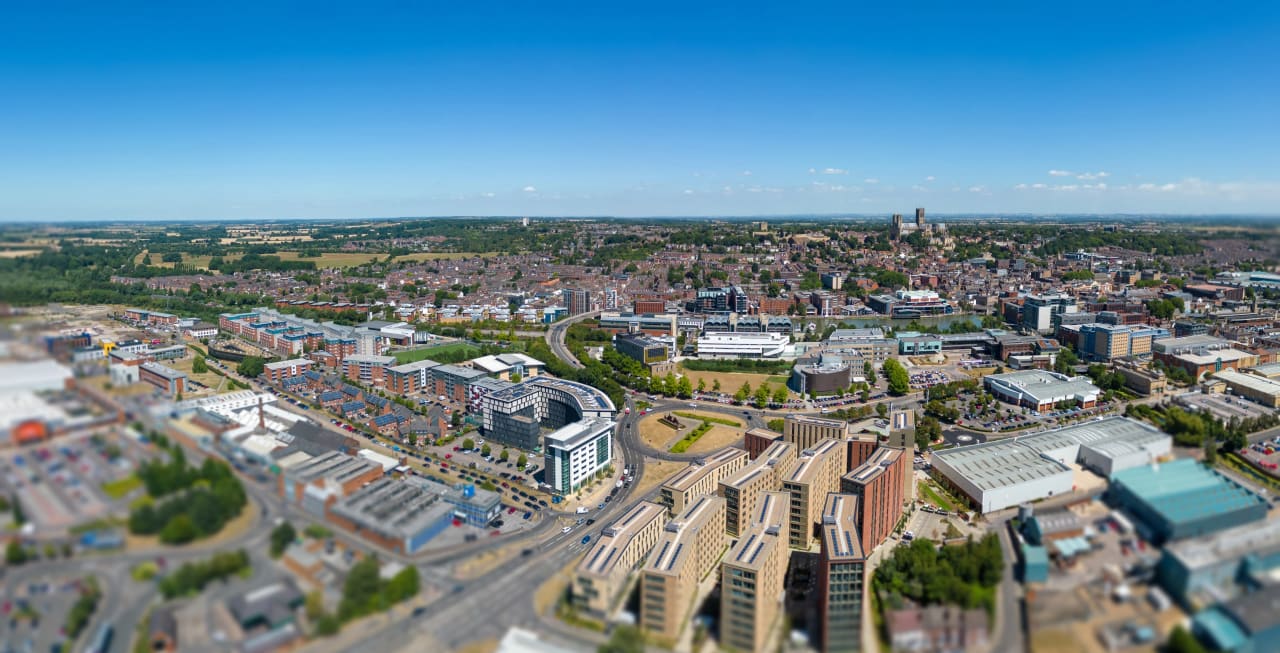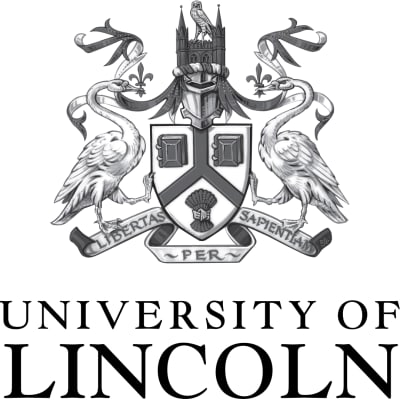
BSc (Hons) Education and Psychology
University of Lincoln

Key Information
Campus location
Lincoln, United Kingdom
Languages
English
Study format
On-Campus
Duration
3 - 6 years
Pace
Full time, Part time
Tuition fees
Request info
Application deadline
Request info *
Earliest start date
Request info
* late applications will be considered if suitable vacancies remain
Discover Lincoln Wherever You Are in the World
Our webinars, subject masterclasses, question and answer sessions, and student panel talks are a great way to discover what it is like to live and study at the University of Lincoln.
Introduction
Education professionals make a difference in the lives of children and young people, inspiring them to learn and develop their knowledge and skills to prepare them for their future.
The way that children and young people learn can shape their entire lives. Those who are passionate about the future of learning can deepen their understanding of education by applying psychology to understand the connection between the brain and behaviour.
The BSc (Hons) Education and Psychology degree looks at the way in which children and young people develop and learn. It uses the application of psychology to support a broader understanding of education, enabling students to gain insight into the ways in which learning is shaped and delivered.
At Lincoln, students have the opportunity to gain insight into the ways in which learning is shaped and delivered. The course explores how psychological theory can be related to a variety of educational environments, as well as considering a range of psychological issues.
Learning and teaching are explored through four areas: philosophy, sociology, history, and psychology - with a strong focus on how psychology can support a broad understanding of education. Education systems in compulsory schools and other learning environments can also be examined throughout the degree.
The programme considers the different ways in which education is implemented and understood throughout the UK, and globally. The course aims to support students to understand and question current and historical education systems and consider how these systems align with policy, practice and social expectations. The psychology aspects of the programme aim to support students to understand how brain processes can support function, and approaches to measuring abilities such as intelligence. Students can also explore contemporary theories in relation to personality development, and social psychology.
Research-based learning is an important part of this course and students will be encouraged to use enquiry and investigative approaches to learn more about education and psychology throughout their three-year study.
"This information was correct at the time of publishing (July 2023)"
Gallery
Admissions
Scholarships and Funding
Going to university is a life-changing step and it's important to understand the costs involved and the funding options available before you start. For eligible undergraduate students going to university for the first time, scholarships and bursaries are available to help cover costs. The University of Lincoln offers a variety of merit-based and subject-specific bursaries and scholarships.
Several scholarship options are available. Please check the university website for more information.
Curriculum
How You Study
During the first year, students are introduced to core education topics which focus on learning, brain, behaviour and cognition, the developing individual in society, and research skills. Students can reflect on the global and local influences on policy and practice, and consider how this has shaped the ways children and young people are enabled to learn. Students can also investigate cognitive capacity, and how the brain develops in order to support learning.
A tutorial system operates throughout the three-year course. The first year aims to provide a sound basis for students to develop their own personal and academic skills, and also aims to facilitate a sound basis for the transition to the second year. The course also includes a series of scheduled meetings with a personal tutor.
In the second year, students have the opportunity to develop and refine their research skills and can begin to tailor their course to their interests by choosing two optional modules to examine topics in greater depth. Students can take part in core modules focusing on: developmental psychology; psychometric testing; diversity, inclusion and alternate approaches to education.
In the final year, students have to opportunity to complete two further core modules, one which reflects on contemporary issues in education, and one which involves the completion of an extended research-based project. This extended research-based module, along with further elective modules aims to provide opportunities for students to build on their own interests which may be determined by their career aspirations.
Teaching takes place in lectures, seminars and workshops, and in small groups, depending on the level and the topic of study. In addition, staff use the intranet to provide materials to support teaching; course materials are posted to an online virtual learning environment to supplement face-to-face teaching, and support onsite and remote study.
First Year
- Brain, Behaviour & Cognition (Core)
- Developing Individual in Society (Core)
- Introduction to Educational Research (Core)
- Introduction to Learning (Core)
Second Year
- Developmental Psychology (Core)
- Diversity, Inclusion and Alternative Education (Core)
- Psychological Assessment & Psychometrics (Core)
- Research Methods in Education (Core)
- Curriculum: Principles and purposes (Option)†
- Education in Digital Society (Option)†
- Intermediate Education (Option)†
- Psychology of Education (Option)†
- Studies of Childhood (Option)†
Third Year
- Contemporary Issues in Education (Core)
- Dissertation (Core)
- Advanced Digital Education: Perspectives and Practice (Option)†
- Advanced Psychology of Education (Option)†
- Advanced SEND (Option)†
- Autistic Spectrum Disorders (Option)†
- Cross-Cultural Psychology (Option)†
- Developmental Psychopathology (Option)†
- Discourse (Option)†
- History of Education (Option)†
- Investigative and Courtroom Psychology (Option)†
- Learning Through Reflection (Option)†
- Philosophy of Education (Option)†
- Psychology of Music (Option)†
- Sociology of Education (Option)†
† Some courses may offer optional modules. The availability of optional modules may vary from year to year and will be subject to minimum student numbers being achieved. This means that the availability of specific optional modules cannot be guaranteed. Optional module selection may also be affected by staff availability.
How You Are Assessed
The aim of module assessments is to provide a measure of the development and attainment of course outcomes, including the attainment of high-level intellectual skills such as critical analysis and evaluation.
Accordingly, the nature of the assessment varies across the three levels of the course. Assessments at levels one and two focus on the acquisition and understanding of knowledge and skills. In contrast, the level three assessments place far greater emphasis on the ability to apply, analyse, and evaluate knowledge.
Program Outcome
How You Study
During the first year, students are introduced to core education topics which focus on learning, brain, behaviour and cognition, the developing individual in society, and research skills. Students can reflect on the global and local influences on policy and practice, and consider how this has shaped the ways children and young people are enabled to learn. Students can also investigate cognitive capacity, and how the brain develops in order to support learning.
A tutorial system operates throughout the three-year course. The first year aims to provide a sound basis for students to develop their own personal and academic skills, and also aims to facilitate a sound basis for transition to second year. The course also includes a series of scheduled meetings with a personal tutor.
In the second year, students have the opportunity to develop and refine their research skills, and can begin to tailor their course to their interests by choosing two optional modules to examine topics in greater depth. Students can take part in core modules focusing on: developmental psychology; psychometric testing; and diversity, inclusion and alternate approaches to education.
In the final year students have to opportunity to complete two further core modules, one which reflects on contemporary issues in education, and one which involves the completion of an extended research-based project. This extended research based module, along with further elective modules aims to provide opportunities for students to build on their own interests, and may be determined by their career aspirations.
Teaching takes place in lectures, seminars and workshops, and in small groups, depending on the level and the topic of study. In addition, staff use the intranet to provide materials to support teaching; course materials are posted to an online virtual learning environment to supplement face to face teaching, and support onsite and remote study.
Program Tuition Fee
Career Opportunities
Graduates would be well-placed to pursue careers in education including roles in schools, colleges, and universities.
Graduates may also wish to move to further study in the form of a PGCE primary teacher training course.